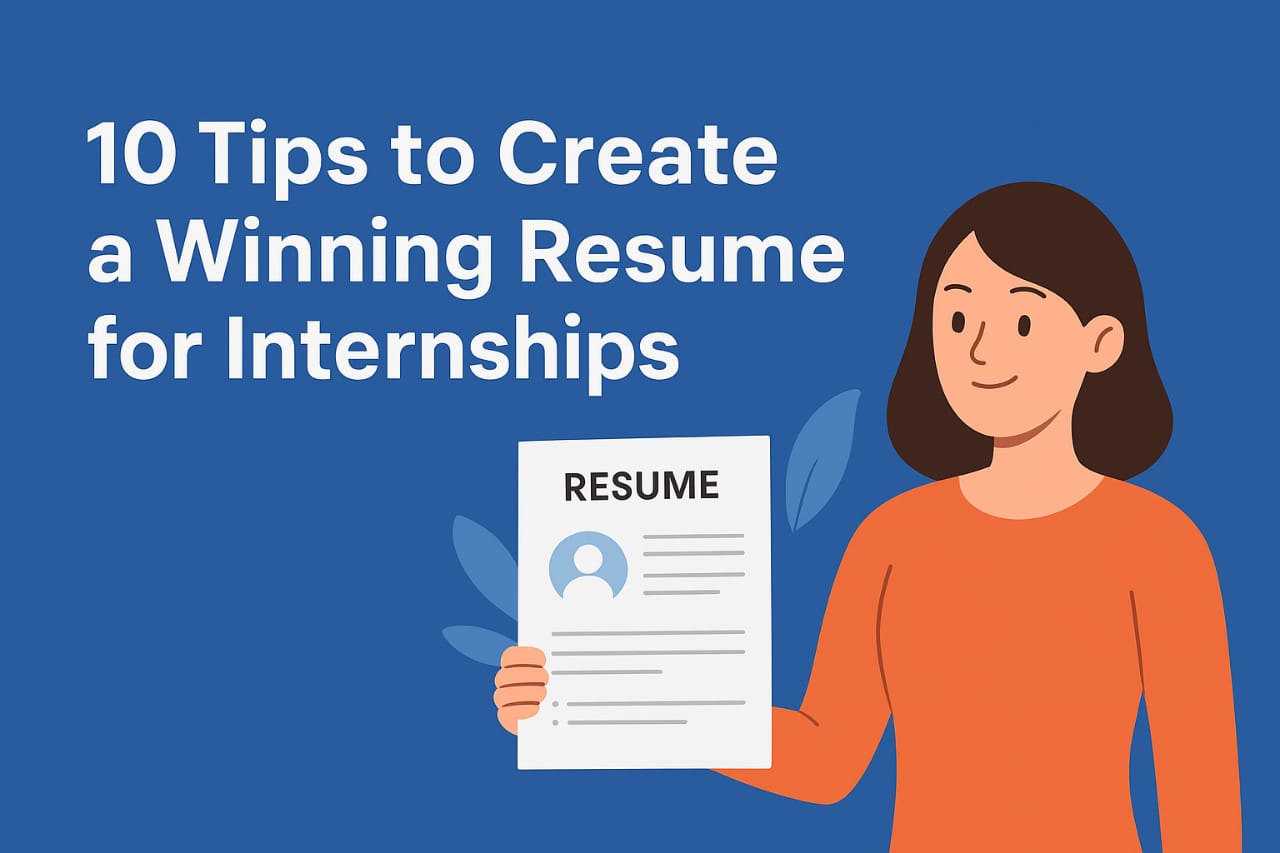Internships are the first step for students to enter the professional world. They not only give you practical experience but also help you understand how industries work. However, many students make avoidable mistakes while applying for internships. These mistakes can reduce their chances of getting selected, even if they have the right skills.
Let’s look at the 10 common mistakes students make while applying for internships and how to avoid them.
1. Applying Without Research
Many students apply to every internship they come across without understanding the company, role, or responsibilities. This makes their applications look generic and careless.
Tip: Always research the company, the role, and the skills required. Then, customize your application to match the job description.
2. Sending a Generic Resume
Using the same resume for every internship is one of the biggest mistakes. Recruiters can easily spot a copy-paste application.
Tip: Tailor your resume for each role. Highlight skills and experiences that are relevant to the internship you’re applying for.
3. Ignoring the Cover Letter
Some students skip writing a cover letter or write very short, unprofessional ones. A cover letter is your chance to explain why you’re the right fit.
Tip: Write a simple but effective cover letter. Share why you’re interested in the role and how your skills can add value to the company.
4. Not Showcasing Practical Skills
Students often focus only on their grades or academic projects but forget to highlight real-world skills like teamwork, communication, or problem-solving.
Tip: Add details of any projects, volunteering work, or part-time jobs that show your practical abilities.
5. Applying Too Late
Some students wait until the last date to apply. By then, many companies already shortlist candidates, reducing your chances.
Tip: Apply as early as possible once you find a suitable internship. Early applicants are often given preference.
6. Spelling and Grammar Mistakes
Simple spelling errors or poor grammar in resumes, emails, or cover letters give a bad impression. It shows carelessness.
Tip: Always proofread your documents before sending them. You can also use tools like Grammarly to check errors.
7. Not Following Instructions
Many internship applications come with specific instructions (like attaching a portfolio or answering certain questions). Ignoring these makes your application incomplete.
Tip: Carefully read the application requirements and follow all the instructions.
8. Weak Online Presence
Today, recruiters often check LinkedIn or other professional platforms. A blank or unprofessional profile can hurt your chances.
Tip: Create a professional LinkedIn profile, upload a decent photo, and showcase your achievements, skills, and projects.
9. Applying Without Confidence
Some students feel they are “not good enough” and apply with hesitation. This lack of confidence reflects in their applications and interviews.
Tip: Believe in your abilities. Even if you don’t have much experience, show enthusiasm, eagerness to learn, and willingness to work hard.
10. Not Following Up
After applying, students often forget to follow up. A polite follow-up email shows seriousness and interest.
Tip: If you don’t hear back in 7–10 days, send a short, polite email to ask about the status of your application.
Final Thoughts
Applying for internships may feel challenging at first, but avoiding these common mistakes can make a huge difference. With a little preparation, personalization, and confidence, you can stand out from other applicants and land the internship you’re aiming for.








